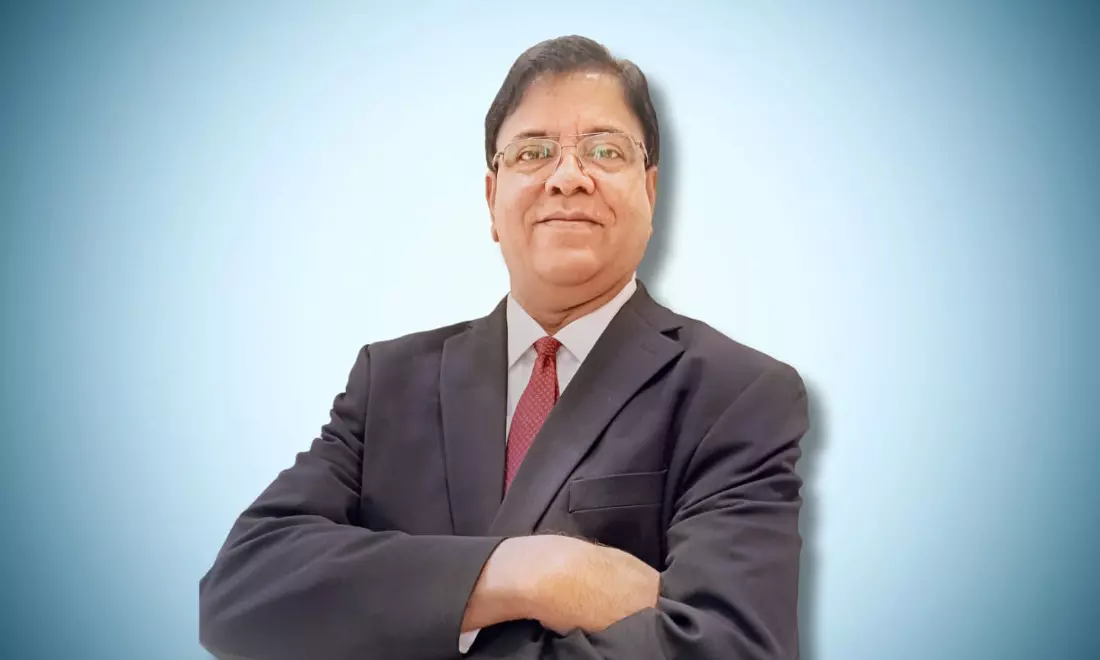CEO speaks: Global Aspirations, Local Classrooms: Your Global Journey Starts at Home

In India, the default path to a world-class education and an international career meant leaving home for the vast majority of students. Families often poured enormous resources into overseas degrees for their children, all in pursuit of ensuring global recognition and mobility. But that era is undergoing a tectonic shift. Today, thanks to a perfect storm of foreign universities entering India, hybrid degree models, digital learning platforms, and skills-focused global exposure, Indian students can now compete as equals on the global stage without leaving the country!
This transformation is not just about convenience or cost. It marks a deeper evolution in the very architecture of higher education. The idea of “going global” is no longer limited by geography or lack of substantial resources. In this new landscape, Indian students from diverse economic and regional backgrounds are gaining unprecedented access to international learning and career opportunities—right from their hometowns.
The single most significant enabler of this change has been the National Education Policy (NEP) 2020, which opened the doors for foreign universities to establish campuses in India. Already, top Australian institutions like Deakin University and the University of Wollongong have announced plans to set up campuses in Gujarat’s GIFT City. Others from the US, UK, and Canada are exploring similar moves. For students, this means the opportunity to earn an international degree, taught by global faculty using world-class pedagogy, without ever stepping out of the country—or breaking the bank.
But the opportunity doesn’t end there. The Global Pathway or Twinning Model is emerging as another powerful bridge to global education. Under this system, students start their academic journey in India and complete their final year or two at a partner university abroad. Whether it’s a BBA or a BTech, they can now study in a cost-effective, phased manner—gaining both global exposure and a prestigious international degree. These programmes also offer smoother visa processes, better cultural readiness, and greater academic alignment—making the overseas transition far less daunting.
Sister Nivedita University (SNU), has become the first university in eastern India to launch a comprehensive Global Pathways Programme. Through this initiative, students begin their higher education journey at SNU and complete their degrees at partner universities in countries such as the USA, UK, Australia, France, and Germany. This first-of-its-kind programme in the region enables students to access world-class education with international exposure while saving on the initial cost of studying abroad.
What sets these international degrees and collaborative models apart from traditional Indian programmes is their emphasis on real-world relevance. While some niche institutions in India remain globally respected, much of India’s broader higher education system is still shackled to outdated norms—rote memorisation, inflexible curricula, and exam-centric evaluations. In contrast, globally aligned programmes prioritise interdisciplinary learning, industry internships, continuous assessment, research-driven inquiry, and cross-cultural collaboration. Students are trained not just to pass exams, but to think critically, work in teams, and solve complex, real-world problems—skills that employers worldwide actively seek.
Beyond formal degrees, another quiet revolution is underway online. Platforms like Coursera, edX, and FutureLearn have democratised access to Ivy League and other top global institutions. An Indian student, regardless of where he is located, can now earn micro-credentials from MIT, Stanford, or Imperial College—often for free or at nominal costs! Many Indian universities are beginning to integrate these Massive Open Online Courses (MOOCs) into their degree structures, allowing students to graduate with both an Indian degree and internationally accredited specialisations. This blended model lets them explore cutting-edge fields like AI, climate technology, or digital finance—often well ahead of domestic curricula. Here again, SNU is leading the way in eastern India by offering engineering specialisations that intimately integrate with Coursera courses.
We need to understand that the global job market today rewards skills, not just certificates. Companies care less about where you studied, and more about what you can do. With platforms like Turing, Forage, and Internshala International, Indian students can now complete virtual internships with companies in Berlin, Boston, or Tokyo. They can join global hackathons, contribute to open-source projects, or pitch start-up ideas on international platforms—all from their bedrooms. Learning a foreign language, mastering global etiquette, and building a cross-cultural portfolio are fast becoming the new currency of international employability.
In this new paradigm, the global stage is no longer reserved for those who can afford to travel—it now belongs to those who are ready to learn, adapt, and lead. You just need the right mindset, the right ecosystem—and the willingness to engage with the world, from wherever you are. The boundaries between local and global are blurring. The world is coming to you—be prepared to meet it, on your own terms, and make the most of it for a bright, internationally mobile future!
The author is the Group CEO of Techno India Group, a visionary and an educator. Beyond his corporate role, he is also a mentor who guides students towards resilience and self-discovery



